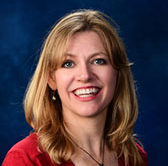A senior student recalled “Definitely my favorite event” during college. The powerful thump of the drums paired with the energetic rise of the trombone and trumpet brought the packed theatre to its feet.
“By the end,” he remembered, “everyone was dancing. It was a time when I felt that I was one with everyone everyone felt like this breakthrough of music.”
Stories like this appeared in interviews we conducted with college undergraduates in 2014-2015 on the role of cultural events in their learning and development. While that student spoke of connection and a memorable shared moment, the auditorium where the jazz band performed has hosted no concerts over the past 18 months.
The COVID-19 pandemic has deeply unsettled learning over the past year and a half. Most students returning to campus this fall have not had a full academic-year campus experience enriched with cultural events.
In addition, the incoming first-year students are coming out of a predominately online or hybrid high school academic experience across the pandemic, where they have barely had in-person class time with their peers, let alone structured social activities.
Breaking students’ now-common routine of time alone with screens will take thoughtfulness and a lot of planning. The experience of being in a space together to hear talks on current events, cutting-edge research or watch a play reminds them or introduces them to the power and potential of shared cultural experiences.
Beyond new knowledge
We spent a decade researching the student experience with on-campus cultural events (OCCEs) with a colleague from another institution. Our findings revealed that attendance at campus events plays a multidimensional role in student learning and development.

Beyond acquiring new knowledge—from general information to specifics related to their program of study—students shared that their engagement in these campus activities broadened their understanding of themselves and the world. OCCEs also provided opportunities for them to learn more about themselves and others, and helped them to gain new or shift old perspectives.
Students routinely identified how the shared experience of participating in distinct events, such as a talk by a Holocaust survivor, or new experiences, such as watching a modern dance performance or hearing the artist at an opening share the influences on their work, left them feeling more aware of and connected to historic or current world events.

OCCEs spurred revelations of new interests, or generated new desired roles or responsibilities for their futures. This shared experience of knowledge generation and distribution stayed with them long after the conclusion of the events themselves.
In addition to COVID restrictions limiting the shared learning experience provided by campus events, they also severely limited the ways in which these events help students to round out their daily experiences or relax and reduce stress. Throughout our focus groups, students shared the important role of campus cultural events in diverting their attention from the daily stresses of student life, providing them with a cost-free evening of fun with peers.
Students highly valued this opportunity for respite from their routine classwork and responsibilities, sharing their joy of participating in a particularly raucous concert, for example, or the humility experienced after learning for the first time about the Rwandan genocide from a survivor. This shared moment across the participants not only generated strong emotions but a significant swell of pride for being part of a campus community that let loose and embraced the moment of fun and good music.
This was a bonding moment for the students and the campus. It shaped powerful memories that students enthusiastically shared during our focus group interviews. It was clear that the connections sparked by events such as these went far beyond the walls of the theatre, shaping students’ conversations with other students, faculty and family. To us, it showed that campus events create more bridges, more connections.
As we continue to evaluate the ongoing marks of COVID, feelings of hopelessness, isolation, and fear, we must remember how events such as these can create a sense of connection and belonging. This is vital for our campus communities, but also for our individual well-being.
The opportunity to engage in shared experiences that spark new curiosities, formulate new ideas and foster connection between students and to their broader campus is what is sorely needed after too much time alone. Those who organize the performing arts and public lectures have an opportunity to do their campus communities a great short-term service, and their intentionality may make a larger impact on us all than ever before.
James Tuten is a professor of history and Kathryn Westcott is a professor of psychology at Juniata College in Huntingdon, Pennsylvania.





